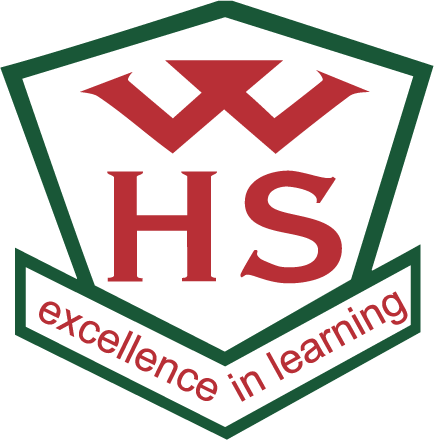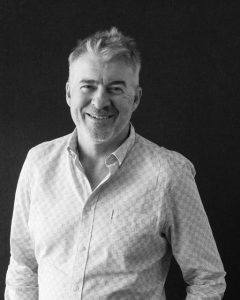I attended a Principal’s conference in Queenstown earlier this week. There were strong themes of decolonising and re-indigenising our curriculum with Professor Mere Berryman’s keynote presenting a powerful examination and, at times horrific history, of education in New Zealand. In approaching this, Professor Berryman quoted Moana Jackson who said that “… to understand how to respond to our challenges in education, we need to understand the historical biases and prejudices that are deeply embedded in our racialised colonial systems” and that our history is based on what he terms ‘mythtakes’ that are “deliberately concocted falsehoods to justify a process that is actually unjustifiable”. A wonderful, very powerful word!
Professor Berryman cited the Doctrine of Discovery (1452) which was a papal bull issued by Pope Nicholas V, used by Christian rulers to justify and exploit the discovery of lands that were not inhabited by Christians. In her words, “within the framework of the Doctrines, Indigenous Peoples were considered non-human part of the native flora and fauna.” Or in Moana Jackson’s words in 2012, the doctrine was “a piece of genocidal legal magic that could, with the waving of a flag or the reciting of a proclamation, assert that the land allegedly being discovered henceforth belonged to someone else, and that the people of that land were necessarily subordinate to the colonisers.”
Professor Berryman continued to cite examples of how these attitudes had weaved their way into education, with a report on native schools presented to both houses of the general assembly in 1862 stating on p38: “I do not advocate for the Natives under present circumstances a refined education or high mental culture; it would be inconsistent, if we take into account the position they are likely to hold for many years to come in the social scale, and inappropriate, if we remember that they are better calculated by nature to get their living by manual than by mental labour”. Then she spoke about the linguicide and the cultural erasure of her parent’s generation echoed in the words of the Director of Education in 1931, TB Strong, who said that “…the natural abandonment of the native tongue involves no loss to the Māori” and that “[education] should lead the Māori lad to be a good farmer and the Māori girl to be a good farmer’s wife”.
You can probably imagine the level of discomfort in the room and the absolute silence as Professor Berryman shifted to the development of curriculum which placed Britain at the centre rather than Aotearoa for the rest of the century. And we all know the cultural harm that has been the result of this and other policies.
However, Professor Berryman has also been at the forefront of leading transformational change in education through her work with Ka Hikitia between 2008 and 2017 and her work in more recent years with Poutama Pounamu.
This work has been based around 4 concepts:
- Resisting the status quo – in other words, “resisting the negative stereotypes about being Māori and experiencing the power of whānau-like relationships to develop and maintain emotional and spiritual strength”.
- Maintaining or developing greater cultural competence – in other words, “staying strong in their own cultural identity, and being able to build on their own experiences as well as the experiences of others”.
- Experiencing success – in other words, “understanding that success is part of who we are.”
- Contributing to the success of others – in other words, “knowing, accepting and acknowledging the strength of working together; interdependence over independence.”
Professor Berryman is positive in her outlook for the future and there are clear recent examples of where we, as a society, have been able to exact change through collective will and action. It’s not okay for us to accept that a section of society will not achieve the same level of success as another. Key to this is, as Berryman says, attaining a level of “critical consciousness – that level of sociopolitical awareness through which a person understands their positionality in the world.” In other words, understanding one’s privilege and realising the responsibility that comes with that privilege.
I must mention the conference dinner which was held at the AJ Hackett Bungy Centre at Kawarau Bridge where the opportunity was afforded to some Principals to participate in one of two active offerings: zipline or bungy. Interestingly, zipline was offered before dinner, and bungy somewhere during and after, which seemed surprising! You may be disappointed to know that I indulged in neither. Zipline in that context seemed a bit boring to me and bungy has always just seemed like a crazy idea – call me chicken, I don’t care! I did take pleasure in watching a few other Principals take part, and I’m sure their students would have loved to have witnessed their participation. However, later I wondered whether the whole experience was a deliberate metaphor about the risks we take in education.
We jumped over the edge in what felt like a small way in 2018, when we introduced a compulsory 2 hour a week Te Ao Māori course at year 9 and we have built on this in 2022 with the introduction of our Aotearoa Histories as a compulsory 2 hour a week component of our year 10 curriculum. This year this involves approximately 570 students and 13 different teachers. In addition, we have 118 students studying Te Reo Māori in years 10 to 13, and we have 38 students involved in multi level curriculum choices of Māori Performing Arts and Māori Studies. These are not giant crazy leaps over cliffs (and by the way, when you bungy jump, you sort of end up where you started which metaphorically is not what you want) but when I consider that only one student opted to study Te Reo at year 10 level in 2009 at Wellington High School, I am proud of the progress we are making. I also know that we are on a journey and we are well away from the destination. Meanwhile, we’ll continue to rethink and reimagine what education can be like in the future, placing at the centre the concepts of Mātauranga Māori and Mana Ōrite, for the benefit of all of our ākonga.
Mauri Ora!
Dominic Killalea
Principal

